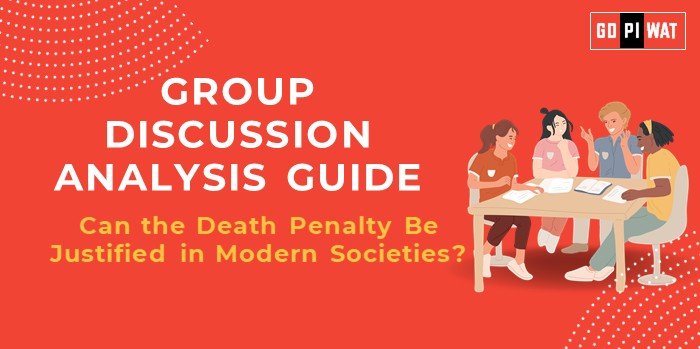📋 Group Discussion Analysis Guide: Can the Death Penalty Be Justified in Modern Societies?
🌐 Introduction to the Topic
- 💬 Opening Context: Globally, over 50 countries have abolished the death penalty, but debates persist regarding its moral, legal, and practical implications. For B-school students, this topic encapsulates ethical leadership and decision-making complexities.
- 📜 Topic Background: The death penalty dates back to ancient civilizations as a means to deter severe crimes. Despite its prevalence, the modern justice system raises questions about its efficacy and fairness. Recent cases, such as its abolition in Sierra Leone in 2021, highlight the ongoing debate.
📊 Quick Facts and Key Statistics
- 🌍 Retentionist Nations: 53 countries, including the US, India, and China, still implement capital punishment.
- 📉 Abolitionist Countries: 111 nations have abolished it for all crimes as of 2024 (Amnesty International).
- ⚖️ Execution Statistics: Over 2,000 executions globally in 2023, with Iran and Saudi Arabia leading.
- 🚨 Judicial Errors: The US Innocence Project cites a 4.1% error rate in death row convictions, leading to wrongful executions.
🔍 Stakeholders and Their Roles
- 🏛️ Governments: Balance public safety with human rights.
- ⚖️ Judiciary: Ensure fair trials and justice.
- 🤝 Human Rights Groups: Advocate for abolition due to moral and ethical concerns.
- 🎭 Victims’ Families: Demand justice and closure.
- 📜 Legal Experts: Debate its legal standing and application.
🏆 Achievements and Challenges
Achievements:
- ✔️ Crime Deterrence: Some argue it deters severe crimes.
- ⚖️ Justice Delivery: Seen as ultimate justice for heinous crimes like terrorism.
- 🎭 Victim Closure: Provides psychological closure to victims’ families.
Challenges:
- ⚠️ Judicial Errors: Risk of executing the innocent.
- 🛠️ Ethical Concerns: Considered inhumane by abolitionists.
- 🌍 Global Comparisons: While Norway focuses on rehabilitation, the US continues executions despite opposition.
🎯 Structured Arguments for Discussion
- ✅ Supporting Stance: “The death penalty is a necessary deterrent for the most heinous crimes, ensuring justice and societal safety.”
- ⚖️ Opposing Stance: “Capital punishment is irreversible, risks wrongful executions, and contradicts human rights principles.”
- 🤝 Balanced Perspective: “While the death penalty may serve as a deterrent, its application should be limited to exceptional cases, with rigorous safeguards to prevent errors.”
🗣️ Effective Discussion Approaches
- 📜 Opening Approaches:
- Start with a global statistic: “Over 2,000 executions were carried out globally in 2023, highlighting its controversial prevalence.”
- Use a landmark case: “The wrongful conviction of Anthony Ray Hinton, exonerated after 30 years on death row, underlines the risks.”
- 🔄 Counter-Argument Handling:
- Oppose: “While deterrence is cited, evidence remains inconclusive. Norway’s rehabilitation model has achieved low recidivism rates.”
- Support: “In India, public outcry over heinous crimes often justifies its selective use to reassure societal safety.”
📈 Strategic Analysis of Strengths and Weaknesses
- 💪 Strengths: Perceived deterrent, justice for heinous crimes.
- 🔧 Weaknesses: Irreversibility, error risk, ethical concerns.
- 🌟 Opportunities: Judicial reforms, international dialogue on alternatives.
- ⚠️ Threats: Public backlash, diplomatic criticism from abolitionist nations.
💼 Connecting with B-School Applications
Real-World Applications: Case studies in ethics courses or discussions on corporate responsibility.
Sample Interview Questions:
- 💡 “What ethical dilemmas arise from capital punishment?”
- 💡 “Should corporations support justice initiatives addressing wrongful convictions?”
Insights for Students:
- Develop balanced perspectives.
- Integrate data in arguments.
- Understand ethical frameworks and their application.


